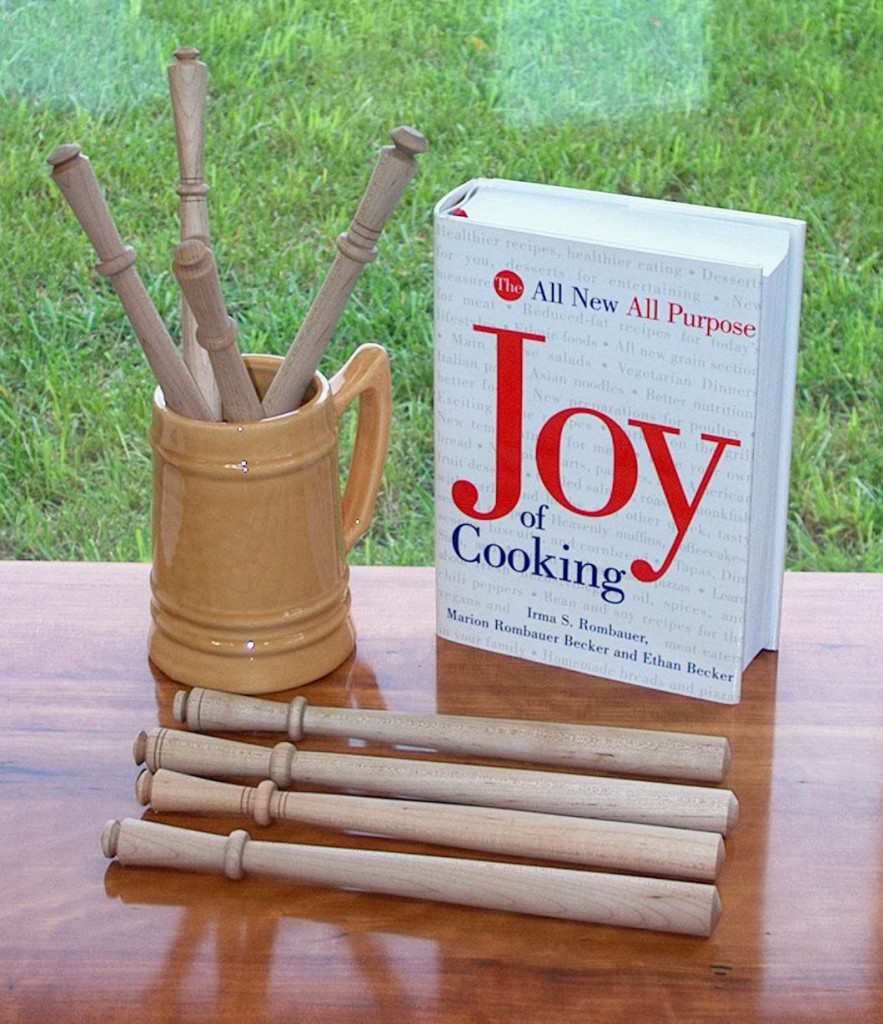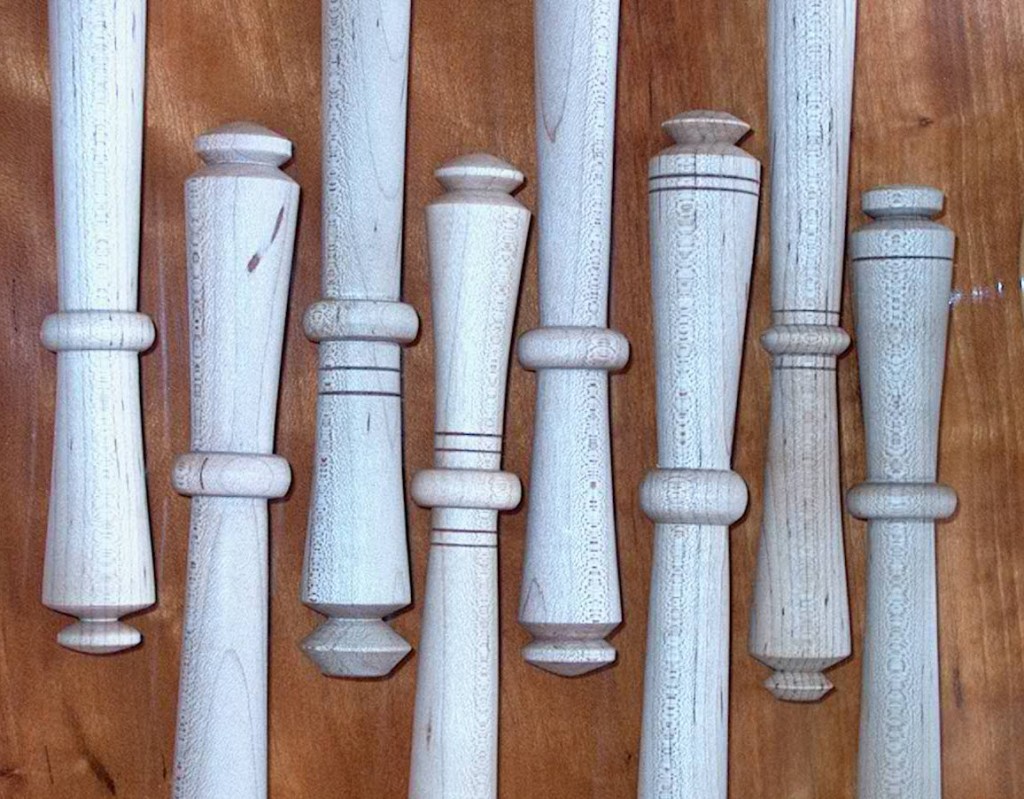(Revised 30 September 2011)
 Although I did turn a lightpost this summer for a customer, my lathe has gotten too little use. So I’ve begun making treen or treenware – small domestic wooden items – on the lathe.
Although I did turn a lightpost this summer for a customer, my lathe has gotten too little use. So I’ve begun making treen or treenware – small domestic wooden items – on the lathe.
Spurtles were perhaps introduced to the general public by Richard Raffan, a well known Australian turner. I’ve always thought they were an interesting project, and well suited to these challenging economic times when eating out is more of a luxury. Instead, make kitchen time more rewarding by trying new recipies and using fine handcrafted woodenware to elevate the practice of food preparation. Home made soups, sauces and puddings can be more fun when stirred with a handcrafted spurtle rather than a plastic spoon!
Spurtles are perhaps best known historically as a common kitchen item in Scotland for constant stirring of porridge (oatmeal in North America), so that it did not become lumpy. 2011 is the eighteenth year for an annual porridge-making contest in Carrbridge, Scotland, with entrants from around the world. The traditional category uses pinhead oatmeal, salt and water; the specialty category allows contestants to get very creative. Competition is always spirited for the annual Golden Spurtle award. Details are at www.goldenspurtle.com
At about 10 1/2″ long, these spurtles make efficient use of what might otherwise be scrap wood. These were made from short offcuts of what will be a sideboard for a repeat customer. Relatively long and thin, spurtles are an excellent item for developing proficiency with the skew chisel.
 My design is not original but that shown by Mr. Raffan in his 1991 Turning Projects video. It works so well, it doesn’t seem likely it could be improved. The cuff nestles just below the fold between thumb and first finger, the narrowing helps keep it there, and the wide base more effectively swirls liquid than a thin one would. Overall, the spurtle is quite comfortable to hold and use.
My design is not original but that shown by Mr. Raffan in his 1991 Turning Projects video. It works so well, it doesn’t seem likely it could be improved. The cuff nestles just below the fold between thumb and first finger, the narrowing helps keep it there, and the wide base more effectively swirls liquid than a thin one would. Overall, the spurtle is quite comfortable to hold and use.
These spurtles were turned from select all white hard maple so they can stand up to regular use. But being wood, normal use should not damage pots and pans. For safe use in the kitchen, they were wiped with pure mineral oil. Hand washing would be recommended, with re-coating with mineral oil as needed.
